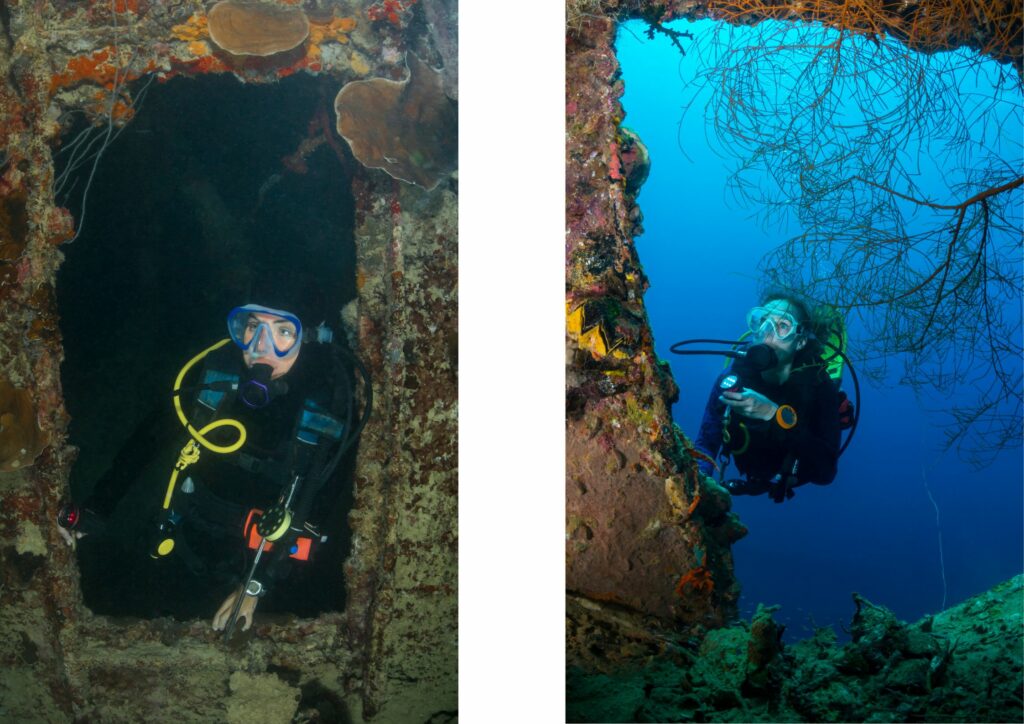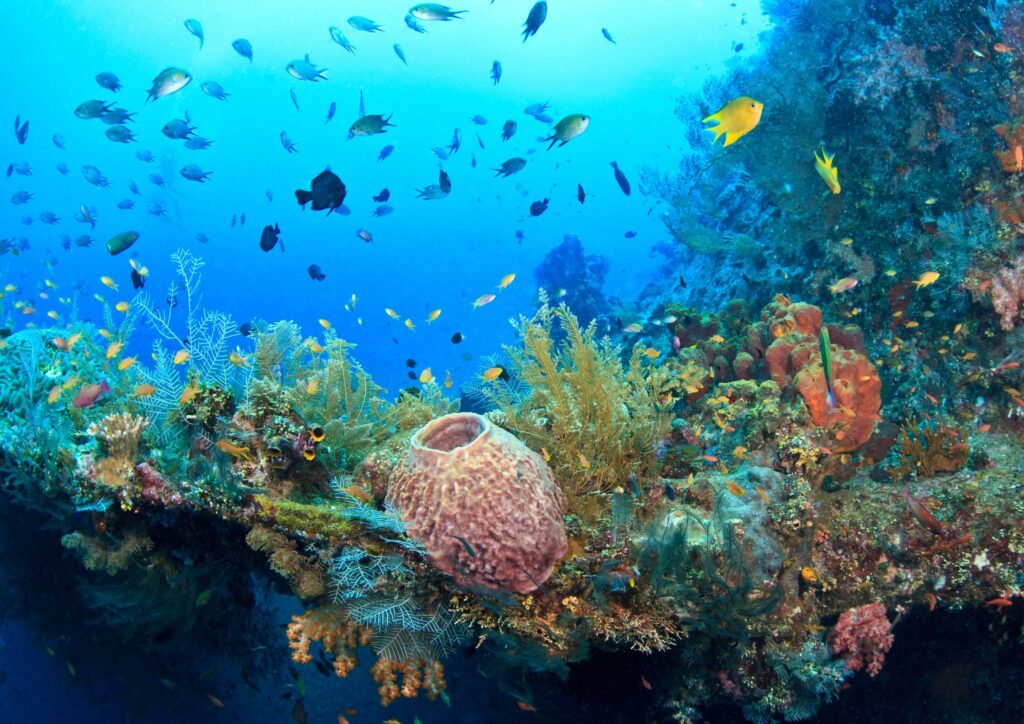Embarking and start scuba diving adventure in Bali is a thrilling way to explore the island’s stunning underwater world. With its diverse marine life, vibrant coral reefs, and historic shipwrecks, Bali offers some of the best diving experiences in the world. Whether you’re a complete novice or an aspiring diving enthusiast, here are three easy steps to kickstart your Bali diving adventure.
Step 1: Choose the Right Dive Certification Course
Before you start scuba diving and can dive into the mesmerizing waters of Bali, obtaining a scuba diving certification is essential. The most recognized certification agencies are PADI (Professional Association of Diving Instructors) and SSI (Scuba Schools International). Both offer comprehensive courses that cover the basics of diving, safety protocols, and practical skills.
- Open Water Diver Course: This beginner-level course is perfect for those new to scuba diving. It includes classroom sessions, confined water dives (usually in a pool), and open water dives. By the end of the course, you’ll be equipped with the knowledge and skills to dive up to 18 meters (60 feet).
- Advanced Open Water Diver Course: If you already have your Open Water certification, consider advancing your skills with this course. It allows you to dive deeper (up to 30 meters or 100 feet) and introduces you to specialized diving activities like night diving, wreck diving, and underwater navigation.
- Local Dive Schools: Bali has numerous reputable dive schools offering certification courses. Look for schools with experienced instructors, good reviews, and a focus on safety. Popular areas with dive schools include Sanur, Amed, and Nusa Lembongan.
Step 2: Gear Up with the Right Equipment to Start Scuba Diving
Having the right diving gear is crucial for a safe and enjoyable diving experience. While most dive schools provide rental equipment, having your own gear can enhance comfort and familiarity. Here’s what you need to start scuba diving:
- Mask and Snorkel: A well-fitting mask and snorkel are essential for clear vision and easy breathing at the surface.
- Wetsuit: Bali’s waters are warm, but a wetsuit is still necessary for protection against stings, scrapes, and maintaining body temperature. A 3mm wetsuit is generally suitable for Bali diving conditions.
- Fins: Choose fins that fit comfortably and provide efficient propulsion through the water.
- Buoyancy Control Device (BCD) and Regulator: These are typically provided by dive schools but owning your own can ensure proper fit and reliability.
- Dive Computer: A dive computer helps monitor your depth, time underwater, and decompression limits, enhancing safety.
Step 3: Plan Your Diving Itinerary
With your certification and gear in hand, it’s time to plan your Bali diving itinerary. Bali boasts a variety of dive sites, each offering unique underwater experiences to start scuba diving

- Tulamben: Home to the famous USAT Liberty shipwreck, Tulamben is ideal for both beginners and advanced divers. The wreck is covered in coral and teeming with marine life, providing an unforgettable diving experience.
- Nusa Penida: Known for its strong currents and diverse marine life, including the majestic manta rays and elusive mola mola (sunfish), Nusa Penida offers thrilling diving adventures.
- Amed: Amed’s calm waters and abundant coral reefs make it perfect for relaxed dives. The area is also great for underwater macro photography, with plenty of small critters to discover.
- Menjangan Island: Located in the West Bali National Park, Menjangan Island boasts pristine reefs and excellent visibility, making it a top choice for vibrant coral gardens and diverse fish species.
- Padang Bai: This site offers a mix of easy and challenging dives, with highlights including the Blue Lagoon and the Jetty, known for its rich marine biodiversity.
By following these three easy steps, you’ll be well on your way to start scuba diving adventure in Bali. The island’s breathtaking underwater world awaits, offering experiences that will leave you with lasting memories and a deeper appreciation for the ocean’s wonders. Happy diving!
Just Breathe Better Underwater
SIGN UP NOW MORE DIVING COURSES

I’m excited to start my scuba diving adventure in Bali! The steps provided are easy to follow and I appreciate the information on certification courses, equipment, and dive sites. Can’t wait to explore the underwater world of Bali!
Hi Maya, thank you for your enthusiasm and excitement about starting your scuba diving adventure in Bali! We’re thrilled to hear that our steps were helpful. At Gill Divers, we pride ourselves on providing a safe and enjoyable experience for all our divers. If you have any questions or need assistance with choosing the right dive site or equipment, please don’t hesitate to reach out. Our team is always here to help. Tel: +65 6734 9373, Email: [email protected]. Good luck on your diving journey, and we look forward to seeing you in Bali!
As a beginner in scuba diving, I found this article very helpful. The tips on choosing the right dive certification course and getting the proper equipment are spot on. Looking forward to planning my Bali diving itinerary!
Thank you, Rizal! We’re thrilled that our article has been helpful in your scuba diving journey. Remember to take your time and enjoy the process of planning your Bali diving itinerary – there’s so much to explore underwater! If you have any questions or need further guidance, don’t hesitate to reach out to us at Tel: +65 6734 9373, Email: [email protected]. Looking forward to hearing about your exciting adventures in Bali!
What a great resource for scuba diving in Bali! The article covers everything from certification courses to dive sites and equipment. I’m impressed with the detail provided. Definitely bookmarking this page for future reference!
Thank you so much, Kavita! We’re thrilled to hear that our article has been helpful in planning your scuba diving adventure in Bali. Don’t hesitate to reach out to us if you have any further questions or need assistance with booking a dive course or planning your trip. Our team is always here to help. Tel: +65 6734 9373, Email: [email protected]